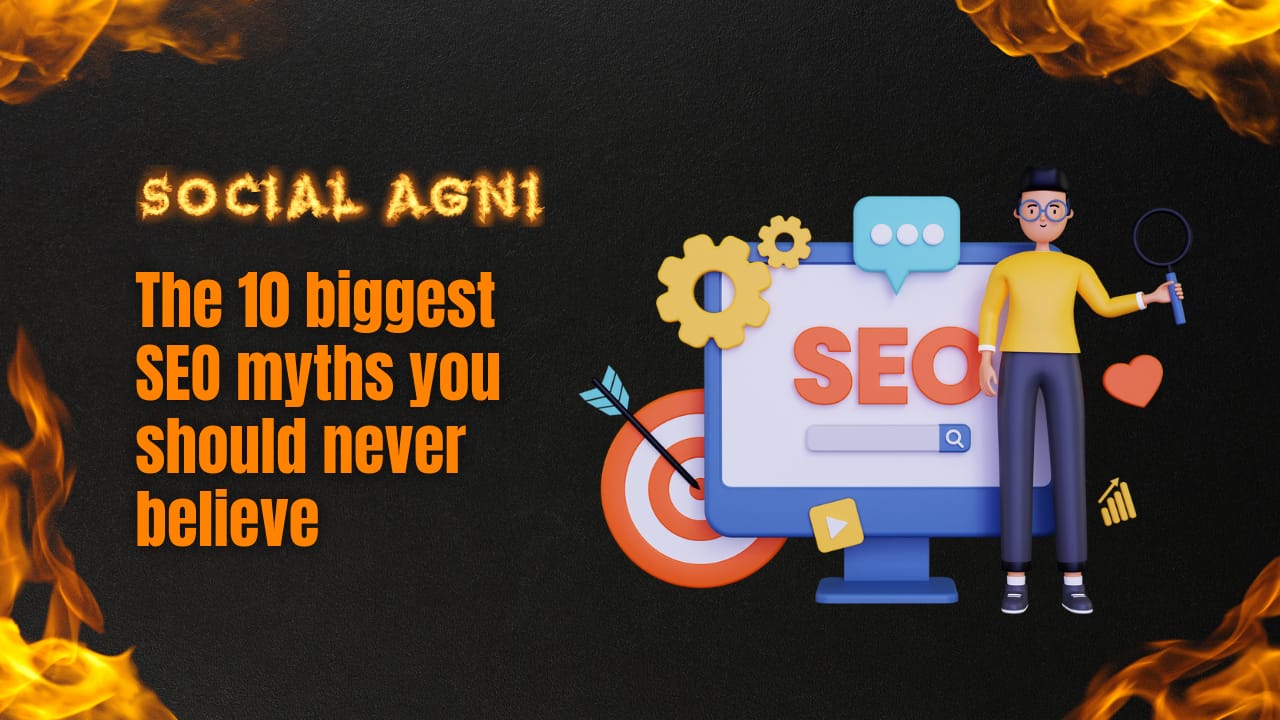SEO is a crucial element in digital marketing that should not be overlooked. Every day, millions of people search for information, products, and services on search engines like Google, Bing, and Yahoo. SEO involves enhancing a website to achieve a better position in the search engine results pages (SERPs) for keywords that are relevant. However, there are many myths about SEO that can mislead website owners and hurt their online visibility. In this article, we will debunk the 10 biggest SEO myths you should never believe. Myth 1: SEO is a one-time task Many website owners mistakenly believe that SEO is a one-time task that they can do and then forget about. However, SEO is a long-term process that requires ongoing attention and maintenance. This is because search engines are constantly updating their algorithms and ranking factors, so website owners need to keep up with the latest trends and best practices in order to maintain their online visibility. Moreover, SEO is not a static process. It requires a lot of experimentation, testing, and refinement to achieve optimal results. Website owners need to monitor their website’s performance on search engine results pages (SERPs) and make adjustments as necessary to improve their rankings. This may involve updating content, building new backlinks, or improving website speed and user experience. Finally, SEO is not a one-size-fits-all solution. Different websites have different goals, audiences, and competitive landscapes. As a result, SEO strategies need to be customized to fit the unique needs of each website. This requires ongoing research and analysis to identify the most effective tactics for improving a website’s SEO. Myth 2: Keyword stuffing is an effective SEO strategy Some website owners believe that they can improve their SEO by stuffing their content with keywords. This strategy is no longer relevant and may have negative consequences for your SEO. Search engines are becoming increasingly sophisticated at detecting keyword stuffing and will penalize websites that engage in this practice. Keyword stuffing can also harm the user experience of a website. When content is stuffed with keywords, it can become difficult to read and understand, which can frustrate users and lead them to leave the site. This can ultimately harm a website’s bounce rate, which is a negative ranking factor. In addition, keyword stuffing can harm a website’s reputation and credibility. When content is clearly written for search engines rather than for users, it can appear spammy and untrustworthy. This can ultimately harm a website’s ability to attract and retain visitors, which can have a negative impact on its SEO in the long run. Myth 3: Social media has no impact on SEO While social media may not be a direct ranking factor, it can still have a significant impact on a website’s SEO. Social media can drive traffic to a website, increase brand awareness, and generate backlinks, all of which are important factors for SEO. When content is shared on social media, it can attract new visitors to a website who may not have otherwise discovered it. This can ultimately increase the website’s traffic and improve its visibility on search engines. Social media can also increase brand awareness by exposing a website to a wider audience and encouraging engagement and interaction with followers. Moreover, social media can also generate backlinks to a website, which are a key ranking factor for search engines. When content is shared on social media, it can be picked up by other websites and blogs, who may then link back to the original source. This can ultimately improve a website’s domain authority and increase its chances of ranking higher on SERPs. Myth 4: Paid advertising improves SEO rankings While paid advertising can help drive traffic to a website and increase brand awareness, it has no direct impact on SEO rankings. Paid advertising and SEO are two separate strategies that should be approached independently. Paid advertising can be a great way to drive traffic to a website, particularly in the short term. However, once the advertising campaign is over, the traffic will likely decrease. SEO, on the other hand, is a long-term strategy that can help a website attract organic traffic over time. Moreover, paid advertising does not improve a website’s domain authority or generate backlinks, both of which are important ranking factors for SEO. While paid advertising can be an effective way to supplement an SEO strategy, it should not be relied on as the sole means of improving a website’s online visibility. Myth 5: Link building is no longer important for SEO Link building has been a key part of SEO since the early days of search engines, and it remains an important factor today. However, the way in which link building is approached has changed over time. In the past, link building was often approached as a quantity over quality game. Website owners would focus on building as many backlinks as possible, regardless of the quality of the source or the relevance of the content. However, this approach is no longer effective and can actually harm a website’s SEO. Today, link building should be approached as a quality over quantity game. Website owners should focus on building high-quality backlinks from relevant, authoritative sources. This requires a lot of research and outreach to identify potential link opportunities and build relationships with other websites and bloggers. Myth 6: SEO is all about technical optimization While technical optimization is an important part of SEO, it is not the only factor that determines a website’s ranking on search engines. SEO is a multifaceted strategy that requires attention to a variety of factors, including content quality, user experience, and backlink profile. Content quality is one of the most important factors for SEO. Search engines are constantly looking for high-quality, informative, and engaging content that is relevant to the user’s search query. Websites that consistently produce high-quality content are more likely to attract organic traffic and improve their rankings on SERPs. User experience is another important factor for SEO. Search engines want to provide
